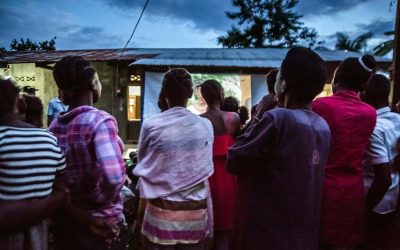ASSP
Access to primary health care project | Accès au Soins de Santé PrimaireABOUT ASSP
The Access to Primary Health Care program, known locally as ASSP, uses a health systems strengthening approach. ASSP collaborates with the Ministry of Health, or MOH, at the national and provincial levels, giving focused support to health zones, health facilities, and community levels. In addition, IMA and its partners ensure that more than 75% of the project resources are concentrated within the health zones. In other words, the majority of funds pay for programs that provide for service delivery, empowerment, accountability and capacity building of local community service organizations, partners and MOH representatives.
The project supports 9.7 million people across 52 health zones.
ASSP works in five provinces: Kasaï, Kasaï Central, Maniema, Nord-Ubangui, and Tshopo.
Where We Work
ASSP supports DRC’s National Health Development Plan. Specifically, we work to improve access to and coverage of primary health care services.
ASSP aims to strengthen priority interventions such as the treatment of malaria, pneumonia, and diarrhea. In addition, its programs work to strengthen nutrition, obstetrics and neonatal care, family planning, immunization, and water, sanitation, and hygiene interventions. Most importantly, all of its services are delivered through the existing health system. Therefore ensuring the sustainability of the programs implemented. These intervention packages are aimed at improving maternal and child health. Thus allowing the DRC to achieve significant progress towards reaching Millennium Development Goals 4, 5 and 6.
read more about our work to improve access to primary health care in the drc
DFID and the SIDA allocated £182,899,146 to support the Government of the Democratic Republic of Congo’s efforts to improve the health of its citizens. Accordingly, IMA World Health was selected as the lead organization to implement ASSP and in collaboration with the MOH. In addition, four implementing partners support the program at the provincial level: SANRU, World Vision, CARITAS and International Rescue Committee. Finally, four technical partners provide assistance at the national level: Tulane University (Operational Research), Pathfinder (Reproductive Health and Family Planning), HISP (Health Information Systems) and IntraHealth (Human Resource Information Systems).
The number of births attended at a health facility by skilled health personnel
This indicator has steadily increased since the start of the project, from just 187,293 at...
Girl Rising is now showing in four provinces in DR Congo
The Girl Rising revolution continues. Thousands of people in four more provinces of the Democratic...
UK Parliament report endorses IMA World Health work in Democratic Republic of Congo, requests expansion
LONDON - A report today by the UK Parliament’s International Development Committee, reviewing the...
QUICK CONTACTS
Recent Posts
The number of births attended at a health facility by skilled health personnel
This indicator has steadily increased since the start of the project, from just 187,293 at baseline to 356,254 in year five, for a total of 1.65 million births attended since the start of the project.
Girl Rising is now showing in four provinces in DR Congo
The Girl Rising revolution continues. Thousands of people in four more provinces of the Democratic Republic of Congo will now see the movie with one imperative message: Educate girls and you will change the world. Volunteers collect stones to help count the crowd. The...
UK Parliament report endorses IMA World Health work in Democratic Republic of Congo, requests expansion
LONDON - A report today by the UK Parliament’s International Development Committee, reviewing the status and impact of UK Department for International Development programming in the Democratic Republic of Congo, endorses IMA World Health’s public health programs as...




